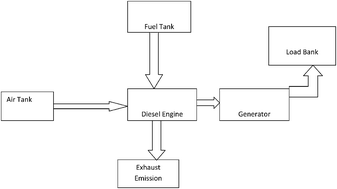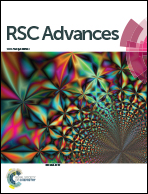Experimental investigation of performance and emissions characteristics of waste cooking oil biodiesel and n-butanol blends in a compression ignition engine
Abstract
Experimental investigations were conducted to evaluate the effects of n-butanol in biodiesel–diesel blends on the performance and emissions characteristics of a constant speed, direct injection diesel engine. The biodiesel–diesel blends were B20, B40 and B60 and the diesel–biodiesel–n-butanol blends were D80–B10–nBu10 and D60–B20–nBu20 on a volume basis. The performance parameters evaluated were brake thermal efficiency (BTE), brake specific fuel consumption (BSFC) and brake power (BP). Emission characteristics including carbon monoxide (CO), un-burnt hydrocarbon (UHC) and oxides of nitrogen (NOx) with different blend ratios were also monitored. All the tests were performed at a constant speed of 1500 rpm and at different load conditions. At full load conditions, the results showed that nBu10 when compared to B0 increased the BSFC by 38.3% and the HC content by 19.9%. In addition, CO emissions were reduced by 22.53%, while NOx emissions increased by 3.6%. In view of reduction in exhaust emissions and comparable engine performance, n-butanol may be used along with biodiesel–diesel blends in a conventional diesel engine without any modification.


 Please wait while we load your content...
Please wait while we load your content...